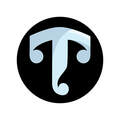Latest Phone Scams To Hit NZ
Two of the most recent scams are Texts claiming to be from NZTA and ANZ.
People are receiving messages from an +61 Australian number, claiming to be from NZTA.
Some of the messages are claiming you have unpaid tolls, that your order may be overdue or that your licence is due to expire.
These messages are coming through with a link that leads to a fake site where customers are asked to enter credit card details, drivers licence details, personal information and two-factor authentication codes.
There are also scam text messages being sent from an Australian phone numbers with a link to verify your identity, to block unauthorised transactions or to view, confirm or cancel a payment. These messages are impersonating ANZ and other well-known companies. Some scam text messages ask you to call a phone number to confirm a payment. When you call the number, you will hear a recording to make you believe you have phoned ANZ.
How to recognise a scam call / text:
Tips to remember:
People are receiving messages from an +61 Australian number, claiming to be from NZTA.
Some of the messages are claiming you have unpaid tolls, that your order may be overdue or that your licence is due to expire.
These messages are coming through with a link that leads to a fake site where customers are asked to enter credit card details, drivers licence details, personal information and two-factor authentication codes.
There are also scam text messages being sent from an Australian phone numbers with a link to verify your identity, to block unauthorised transactions or to view, confirm or cancel a payment. These messages are impersonating ANZ and other well-known companies. Some scam text messages ask you to call a phone number to confirm a payment. When you call the number, you will hear a recording to make you believe you have phoned ANZ.
How to recognise a scam call / text:
- Unexpected contact from someone claiming to be from a trusted organisation, such as a bank, utility provider or even a charity.
- The call could come from a blocked or foreign number, but scammers can also disguise the number to look local using a method called number spoofing.
- Requests for money or personal information such as credit card details or passwords over the phone.
- Pressure to make a decision quickly or face negative consequences.
- Telling you that there is a problem with your computer and that they can help you fix it.
- Telling you something that you think is too good to be true such as winning a prize in a competition that you don’t remember entering.
Tips to remember:
- If you receive an unexpected or suspicious text message or email, never click on any links or download any attachments in it.
- If the caller has told you they are from a particular company, ring the company (find their number elsewhere, don’t call back the number they called you from) and alert them to the call you have just received. They will let you know if it was a legitimate call.
- Never provide or confirm your credit card details, Internet Banking log in details, or two factor authentication codes, through a link in an email or text message, or in response to a phone call you’ve received out of the blue.
- Banks, including ANZ will never send you a text message out of the blue and ask you to click on a link.
Other Bulletin Articles



